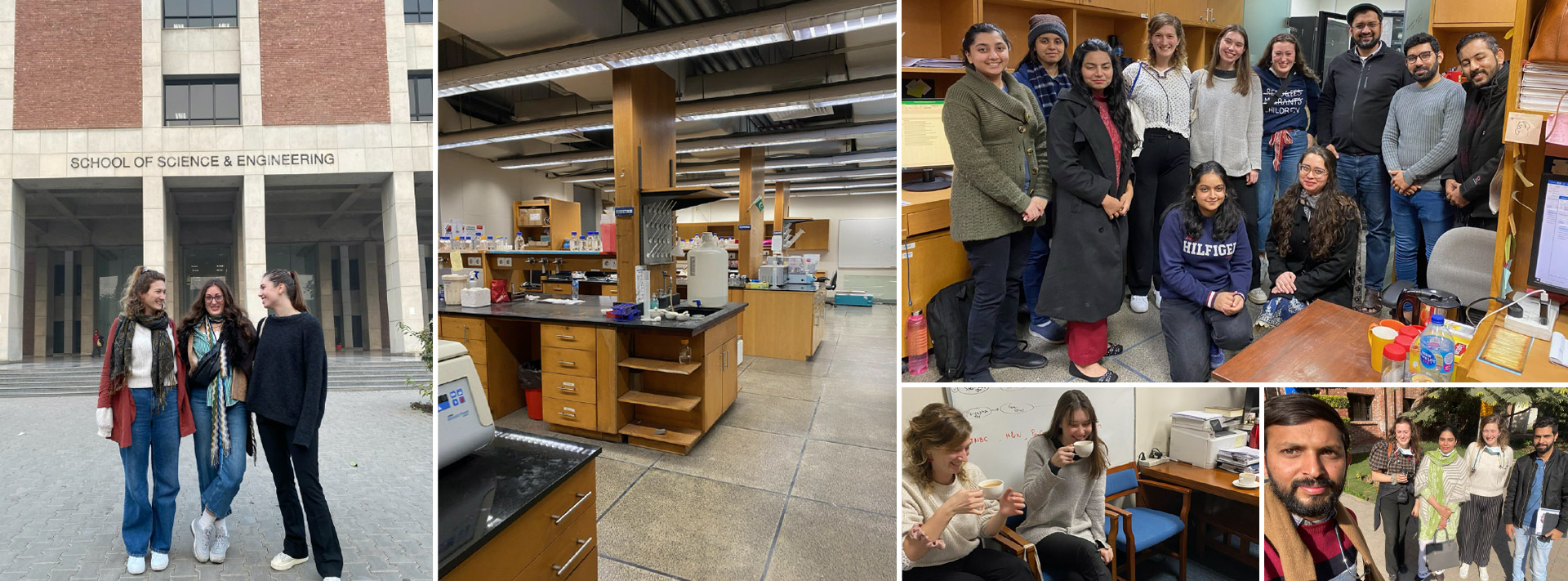About NORPART
Norwegian Partnership Programme for Global Academic Cooperation (NORPART) is the collaborative program for enhancing higher education in Pakistan and Norway through academic cooperation and mutual student mobility. The program is funded by the Ministry of Education and Research and the Ministry of Foreign Affairs.Partner institutes in the program are; Gulab Devi Hospital (GDH) and Institute of Research and Development (IRD)), Institute of Public Health (IPH) and Lahore University of Management Sciences (LUMS) in Pakistan and (University of Bergen, (UiB)), Norway on this grant.
LUMS, a Not-For-Profit university and a top-tier research institution, is an extraordinary place for young individuals looking to embark a journey of self-discovery and transformation, which harbor the courage to question and rise above challenges. As a frontier in academic and intellectual research, we have cultivated an environment that encourages diversity and inclusion, and have created countless educational opportunities that play a pivotal role in a better tomorrow. As a collaborative partner, LUMS offers a phenomenal opportunity to emerging youth leaders from diverse backgrounds around the globe to partake in a rigorous training program that will equip them with the necessary wet lab knowledge, expertise and critical professional skills that will help them in their future endeavors.
The primary objective of our grant is to recalibrate our efforts in global health with a major focus on health equity. Objectives will be achieved by enhancing the quality of higher education and training in global health. An integrated multi-disciplinary case-based pedagogical approaches will be deployed to train global health students in combating global health challenges. Using proficiencies of collaborating institutes in Norway and Pakistan, we propose to build a robust program for training of health/global health professionals.
Strategic Plan
Pakistan has one of the highest reported burdens of communicable and infectious diseases (ID) in the world and the situation is likely to worsen in the coming years. Pakistan is also one of the hardest hit countries by climate change, which has led to an onslaught of communicable diseases like gastroenteritis, pneumococcal pneumonia, and Tuberculosis (TB).
Designing preventive interventions for such diseases requires (a) an in-depth understanding of the local contexts and practices involved in the spread of such infections, and (b) a system to translate this knowledge into designing targeted interventions for lowering the overall disease burden. Major barriers to the development of such programs are the (i) unavailability of an enabling system, and (ii) lack of the critical mass of physician-scientists and basic-science researchers trained in transnational research methods required to understand and address the rapidly evolving healthcare needs of the local community. Norway-Pakistan academic Partnership through NORPART aims to develop a structural transnational research training program in communicable and non-communicable disease. This program will:
- Enhance higher education in Pakistan and Norway through academic cooperation and mutual mobility.
- Recalibrate efforts in global health with a major focus on health equity
- Create opportunities to transform public health through power for education and research
- Develop theoretical skills to understand challenges of global health by designing joint courses with integrate active cross-disciplinary case-based and project based pedagogical approaches.


